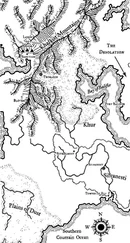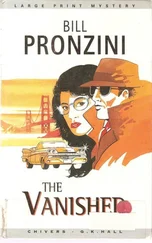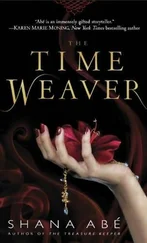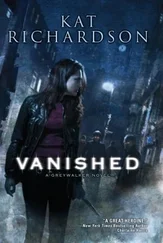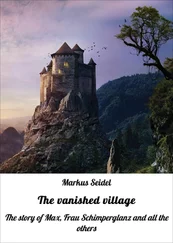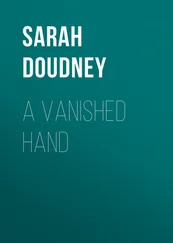My mind turned back to Fell Wood, to the old line, to the staffroom. And then more images flashed inside my head: Pell with the prostitute, beating her and raping her, and the man – momentarily caught in the mirror’s reflection – sitting there calmly, legs exactly parallel, watching it all play out.
‘You want the truth?’ I asked.
He studied me. Didn’t reply.
‘I don’t honestly know what I think about Sam.’
It was the first time I’d admitted it out loud, the first time I’d even really admitted it to myself. I’d never seen Sam as a killer, and still struggled to see him as one now. Nothing I’d pulled out of the earth, in any part of his life, pushed me in that direction. But I’d seen men – good men – shackled to forces much darker than them; and then I’d seen the things those men were prepared to do, either because they wanted to, or because they were forced to. And in Sam’s life there was Adrian Wellis and Duncan Pell. Both of them out there, somewhere. One a trafficker. One a hunter and a rapist.
‘He might be working with someone,’ I said.
Healy frowned. ‘What?’
‘I don’t know how exactly. I don’t even know if I really believe it. I’m putting all this together as I go along, but …’ I stopped and looked at him. A part of me still didn’t trust him not to take what I had and run back to Craw with it. He was trying to reboot his career, after all. But as I stood there, I noticed the look in his face, the loneliness and frustration, and realized the biggest part of him was still out there on his own – and, ultimately, that was the part of him I had to take a chance on.
‘Your unsolved …’
A change in his face. ‘Spane?’
‘Yeah, Leon Spane. I think I know who really killed him.’
I told him about Duncan Pell, about Leon Spane, about the CCTV footage I’d studied and the DVDs I’d had to sit through. I told him about the girl and her connections to Adrian Wellis, about what I’d found out at the old line, and then about the man watching Pell and the girl in the videos. I didn’t offer any theories, because Healy could see where this was headed, and, afterwards, I started to wonder if I’d given him too much. But as he lit a second cigarette, I realized it was too late anyway. It was out there, in the space between us, and whatever he chose to do with it wasn’t going to make much of a difference to me.
I was finding Sam Wren either way.
I looked out to the river, black and swollen, a wall of rainwater cascading down from Victoria Embankment. ‘What sort of person is comfortable doing that?’ I asked.
‘What?’
‘Sitting there, watching Pell rape that girl.’
Healy shrugged. ‘Someone who was just like Pell.’
I nodded.
‘Is that person Wren?’ he asked.
‘I don’t know. I don’t know why he’d sit there and watch a woman get beaten and raped. I don’t know why he’d choose not to intervene. I don’t know how he’d get into that situation in the first place. If – just for a minute – we’re assuming he’s the one taking these men, then this woman isn’t even his fantasy. This is Pell’s.’
‘So they’re working together.’
‘I don’t know. Maybe.’
‘You’re still not certain that Wren’s involved?’
‘I didn’t say that. I said I’ve never seen him as a killer.’
‘What about if Pell’s doing the killing for him?’
‘It’s a stretch.’
‘Is it?’
He meant the CCTV footage of Pell beating Robert Stonehouse to a pulp on the floor of Gloucester Road station; harassing and bullying Spane, pushing him and kicking him; and he meant the station on the old line. Its smell. Its unseen history. Me being attacked in the tunnel.
‘Pell’s a soldier,’ Healy said. ‘He knows how to kill.’
‘I know.’
‘He could be taking the men for Wren.’
‘But Pell’s into women.’
‘So maybe he’s taking women too.’
‘But that’s my point: who are these women? The Snatcher’s left behind a trail, however slight. There’s no trail leading to any missing women. And what about the girl on the DVD? She’s alive. She’s in hospital, but she’s alive. If Pell wanted her dead, if this was part of the plan and some kind of reciprocal arrangement – if Sam’s helping Pell and Pell’s helping Sam – why let her live? Why rape her repeatedly, expose your identity on film and then hand her back to Adrian Wellis?’
Healy took a drag on the cigarette.
‘I don’t know,’ he said quietly.
‘We need to go and see the girl.’
‘But first we need to do something else.’ He took a last drag on the cigarette and then flicked it out into the night. It fizzled out instantly. ‘We need to go in here.’
‘To the station?’
He nodded.
‘Why?’
‘To talk to the patrolman who found Drake’s phone.’
‘Why?’
‘Because he got spooked.’
‘About what?’
‘Says he found it, just sitting there on the platform, at one in the morning.’
‘So?’
‘So, why did no one spot it while the station was open?’
I looked at him – and he nodded once when he saw I’d made the connection.
‘Because someone put it there after the station closed.’
57
The patrolman was a guy called Stevie O’Keefe, and his Irish heritage appeared to begin and end at his name. He had dark, Mediterranean skin, even darker eyes and a jet-black Elvis quiff. At a guess I would have put him in his late forties or early fifties.
Healy had arranged with the Jubilee line’s general manager for O’Keefe to take us down after hours. It was an irregular request, one Transport for London would probably have been keen to avoid given the security precautions they’d put into place since 7/7, but Healy had used the badge as a way in, and then peppered what came after with regular mentions of the Snatcher. I remembered the worst bits of Healy well, all the anger, the aggression and the fight, but he could play the game with the best of them. If he needed to turn down the volume, adjust his tone, come in softly, he could do that too.
We moved through Westminster station in silence. None of the escalators were switched on at night, so we used them like staircases, and then emerged into the turbine hall, a vast cathedral of stone and stainless steel, full of criss-crossing pillars. Westminster was the Tube’s deepest ever excavation, and the journey to the Jubilee line saw you drop one hundred feet in a matter of seconds. Even then you weren’t done: the Jubilee platforms were built one on top of the other, the westbound the deeper, and by the time you got to the bottom, you were more than thirty metres under the earth. Down with the devil , I thought, recalling something an old colleague on the paper had once said. Back when they’d first carved the Tube out of the earth in the 1860s, people were scared it might wake Satan himself.
It was a weird feeling heading through the building’s spaces and not passing anyone, but more unsettling was the complete lack of sound: I’d read about people like O’Keefe, how they spent their lives walking through darkness and quiet, but I’d never appreciated silence, never fully understood it, until we got down to the line.
At the platform, O’Keefe hesitated briefly. Transparent screens had been erected all the way along, which – during the day – would slide back once the train was in the station. They were closed now and, beyond them, it was hard to make out the line without the help of a torch. ‘I found it there,’ he said quietly, pointing to the last of the screens.
‘On the platform, at the end?’ I asked.
O’Keefe just nodded.
‘Are you okay?’
He glanced at me. ‘Sure.’
Читать дальше


